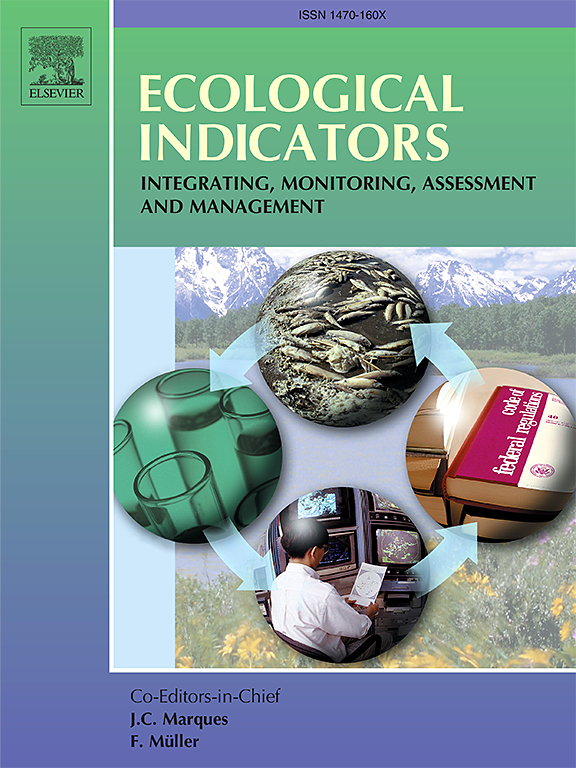评估使用机器学习算法根据一组简化的预测因子确定水库水质的可行性
IF 7
2区 环境科学与生态学
Q1 ENVIRONMENTAL SCIENCES
引用次数: 0
摘要
本研究通过应用四种不同的机器学习算法(ML):神经网络模型(NNM)、随机森林(RF)、k近邻(KNN)和线性回归(LR),分析了使用水质指数(WQI)评估水质的可能性。以P、COD、BOD5、总氮和总悬浮物TS 5个指标确定水质,并分析基于减少的预测因子数预测水质的可能性(WQI指数)。估计哪些指标对WQI值的影响最显著。使用不同算法的模型,以及在完整和简化数据集上训练的模型的性能进行了比较。该模型在WQI预测方面表现出色,整个数据集的R2为0.999 (NNM和LR),仅使用三种预测器的数据集的R2为0.988 (KNN),仅使用两种预测器(RF)的数据集的R2为0.941。简化集和预测器类型的ML模型的构建和训练将使仅基于少数选定参数的早期水质估计成为可能。ML算法的实现将实现更有效的水质管理,并显着提高关键水参数预测的精度。本文章由计算机程序翻译,如有差异,请以英文原文为准。
Assessing the feasibility of using Machine learning algorithms to determine reservoir water quality based on a reduced set of predictors
The present study analyses the possibility of assessing water quality using the water quality index (WQI) through the application of four different machine learning algorithms (ML): neural network models (NNM), random forest (RF), k-nearest neighbor (KNN), and linear regression (LR). Water quality was determined based on 5 indicators: P, COD, BOD5, N total, and total suspended solids TS. The possibility of predicting water quality (WQI index) based on the reduced number of predictors was then analyzed. It was estimated which indicators have the most significant impact on WQI values. The performance of models using different algorithms, as well as those trained on full and reduced data sets, was compared. The models demonstrate high performance in WQI prediction, achieving an R2 of 0.999 (for NNM and LR) for the entire dataset, 0.988 (KNN) for the dataset using only three types of predictors, and 0.941 for the dataset using only two predictors (RF). The construction and training of ML models for reduced sets and types of predictors will enable early water quality estimation based on only a few selected parameters. The implementation of ML algorithms will enable more effective water quality management and significantly improve the precision of predictions for critical water parameters.
求助全文
通过发布文献求助,成功后即可免费获取论文全文。
去求助
来源期刊

Ecological Indicators
环境科学-环境科学
CiteScore
11.80
自引率
8.70%
发文量
1163
审稿时长
78 days
期刊介绍:
The ultimate aim of Ecological Indicators is to integrate the monitoring and assessment of ecological and environmental indicators with management practices. The journal provides a forum for the discussion of the applied scientific development and review of traditional indicator approaches as well as for theoretical, modelling and quantitative applications such as index development. Research into the following areas will be published.
• All aspects of ecological and environmental indicators and indices.
• New indicators, and new approaches and methods for indicator development, testing and use.
• Development and modelling of indices, e.g. application of indicator suites across multiple scales and resources.
• Analysis and research of resource, system- and scale-specific indicators.
• Methods for integration of social and other valuation metrics for the production of scientifically rigorous and politically-relevant assessments using indicator-based monitoring and assessment programs.
• How research indicators can be transformed into direct application for management purposes.
• Broader assessment objectives and methods, e.g. biodiversity, biological integrity, and sustainability, through the use of indicators.
• Resource-specific indicators such as landscape, agroecosystems, forests, wetlands, etc.
 求助内容:
求助内容: 应助结果提醒方式:
应助结果提醒方式:


